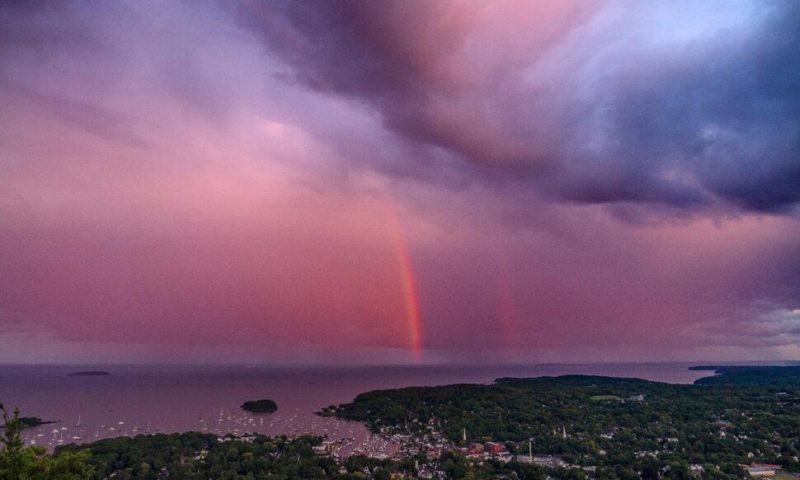Environmental groups are urging a moratorium on deep-sea mining ahead of an international meeting in Jamaica where an obscure U.N. body will debate the issue amid fears it could soon authorize the world’s first license to harvest minerals from the ocean floor
SAN JUAN, Puerto Rico — Environmental groups on Wednesday urged a moratorium on deep-sea mining ahead of a meeting in Jamaica of a U.N. body that conservationists fear will soon authorize the world’s first license to harvest minerals from the ocean floor.
More than 20 countries have called for a ban or moratorium on deep-sea mining ahead of Monday’s opening of a nearly two-week meeting of the U.N. International Seabed Authority’s council. Companies including Samsung and BMW also have pledged to avoid using minerals mined from the deep sea.
“Sea mining is one of the key environmental issues of our time, and this is because the deep sea is among the last pristine areas of our planet,” said Sofia Tsenikli, from the Deep Sea Conservation Coalition, a Netherlands-based alliance of environmental groups.
The development of clean energy technologies including electric vehicles, solar panels and wind turbines is driving up demand for metals such as copper, nickel and cobalt that mining companies say can be extracted from more than 600 feet (180 meters) below sea level.
Demand for lithium tripled from 2017 to 2022, while cobalt saw a 70% jump and nickel a 40% rise, according to a market review published in July by the International Energy Agency.
Mining companies say that harvesting minerals from the deep sea instead of land is cheaper and has less of an environmental impact. But scientists and environmental groups argue that less than 1% of the world’s deep seas have been explored, and they warn that deep sea mining could unleash noise, light and suffocating dust storms.
“It has the potential to destroy Earth’s last wilderness and endanger our largest carbon sink while proving itself neither technical nor financially feasible,” said Bobbi-Jo Dobush from The Ocean Foundation, a U.S.-based nonprofit.
The International Seabed Authority, which is tasked with regulating deep international waters, has issued more than 30 exploration licenses. China holds five, the most of any country, with a total of 22 countries issued such licenses, said Emma Wilson with the Deep Sea Conservation Coalition.
Much of the exploration is focused in an area known as the Clarion-Clipperton Fracture Zone, which spans 1.7 million square miles (4.5 million square kilometers) between Hawaii and Mexico. Exploration is occurring at depths ranging from 13,000 to 19,000 feet (4,000 to 6,000 meters).
No provisional mining licenses have been issued, but scientists and environmental groups worry that a push by some members of the International Seabed Authority and its secretariat to adopt a mining code by 2025 could soon change that.
“The very existence of this institution relies on mining activities beginning,” Wilson said, noting that the authority would be financed by royalties from mining contracts.
The authority said in a statement to The Associated Press that its mandate is to protect and regulate, and that the decisions taken reflect the will of member states.
“The ISA is not pushing for exploitation,” it said. “ISA member states have agreed that no mining will begin before an agreement is reached on regulations regarding economic exploitation and environmental protection.”
The authority also said it is ensuring that ongoing negotiations are informed by the “best available science,” and that in addition to its 169 members, it takes into account input from more than 100 observers, including non-governmental and civil society organizations.
The authority is still debating rules and regulations for a proposed mining code, but any company at any time can apply for a mining license.

